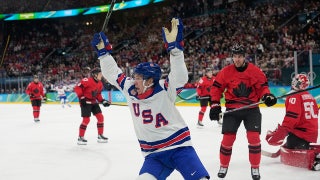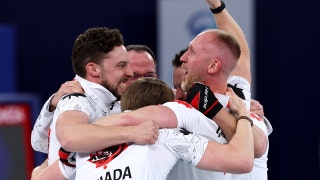DENVER – The U.S. Olympic Committee is back at the table with Kellogg, reuniting with a longtime sponsor that took a brief break during the rough economy.
The deal, announced Monday, runs through the 2016 Olympics and falls into the category of the USOC's bigger sponsorships, which are usually worth more than $10 million over a four-year period.
Kellogg had a business relationship with the Olympics from 1976-92 and with the USOC from 2000-08 but left the fold after the Beijing Games — part of an exodus of key USOC sponsors that forced the federation to scramble.
An important part of the deal includes placing the company's products at Olympic training centers and other team venues.
The USOC, looking for new ways to lure sponsors, made this deal more attractive by connecting Kellogg with other Olympic sponsors — including Coca-Cola, Anheuser-Busch and Proctor and Gamble — so they can work together on Olympic marketing programs. Executives from some of these companies will be meeting this week at USOC headquarters in Colorado Springs.
Brad Davidson, the president of Kellogg's North American operation, said the company had stepped away briefly because "at the time, we were doing things that better suited our business needs."
"But we're stepping back in for the next six years," he said. "We feel good about the history. There are a lot of blue-chip companies hooked up with the USOC and we look forward to working with those companies and some of those iconic U.S. brands."
The USOC is hoping to feature Kellogg as it focuses more on issues such as sports nutrition.
At about the same time Kellogg left, the USOC was also stung by the departure of companies such as General Motors, Home Depot and Bank of America. Slowly, the USOC has found new sponsors in some of these categories — BMW and Citigroup — while looking into new markets for other promotional ties.
However, a number of the federation's sponsorship deals end after the London Olympics, which keeps the marketing department busy as it tries to fill major holes. Without government subsidies, the USOC must fund Olympic athletes largely through the money it makes in sponsorship deals.
The USOC, of course, always becomes a much more lucrative brand as the Olympics get closer and the buzz about the games grows. The action in London begins in a bit more than 15 months.
"I'm optimistic," chief marketing officer Lisa Baird said. "We've gotten a lot of good news lately. Clearly, our partners in the market are responding. They're excited about our prospects for London. There's a lot of excitement in the market about that."








































